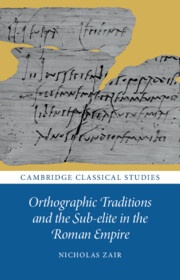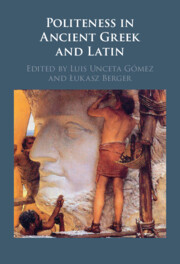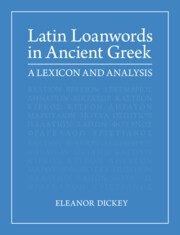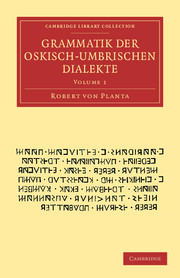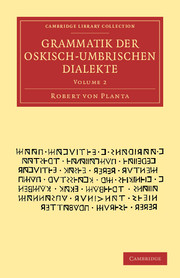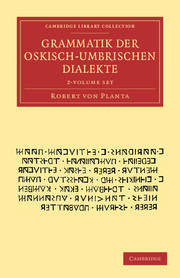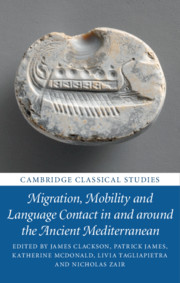Orthographic Traditions and the Sub-elite in the Roman Empire
£85.00
Part of Cambridge Classical Studies
- Author: Nicholas Zair, University of Cambridge
- Date Published: June 2023
- availability: Available
- format: Hardback
- isbn: 9781009327664
£
85.00
Hardback
Other available formats:
Paperback, eBook
Looking for an inspection copy?
This title is not currently available on inspection
-
This book makes use of digital corpora to give in-depth details of the history and development of the spelling of Latin. It focusses on sub-elite texts in the Roman empire, and reveals that sophisticated education in this area was not restricted to those at the top of society. Nicholas Zair studies the history of particular orthographic features and traces their usage in a range of texts which give insight into everyday writers of Latin: including scribes and soldiers at Vindolanda, slaves at Pompeii, members of the Praetorian Guard, and writers of curse tablets. In doing so, he problematises the use of 'old-fashioned' spelling in dating inscriptions, provides important new information on sound-change in Latin, and shows how much can be gained from a detailed sociolinguistic analysis of ancient texts.
Read more- Demonstrates that spelling change in the Roman alphabet was a complex and unpredictable process
- Examines the use of optional spelling features in sub-elite texts to reveal that the sub-elite could have access to a relatively high level of education
- Makes use of digital corpora to give in-depth details of the history and development of relevant orthographic features and sound change across the history of Latin
Reviews & endorsements
'… rewarding for epigraphists and linguists, and indeed for anyone interested in the development of Latin orthography and the Latin language, as well as those interested in sub-elite populations and their textual reflection in the Roman empire.' Brent Vine, Mawr Classical Review
Customer reviews
Not yet reviewed
Be the first to review
Review was not posted due to profanity
×Product details
- Date Published: June 2023
- format: Hardback
- isbn: 9781009327664
- length: 314 pages
- dimensions: 223 x 145 x 24 mm
- weight: 0.52kg
- availability: Available
Table of Contents
1. Introduction
Part I. Old-fashioned Spellings:
2.for /aḙ/
3.and for /i:/
4.for /u/
5.for /u:/
6. Alternation of and
7.for /we/ before a coronal
8.and for /wu/ and /uu/, and and for /kwu/
9. Double letters to write long vowels
10.for /g/
11.for /jj/
12.before /(a:)/ and before /u(:)/
13.for /k/ before back vowels
14.for /ks/
15. Geminates and singletons
16. spepondi
17. popl- and pupl- for publ-
Part II. Apices and i-longa:
18. Introduction
19. Apices and i-longa in the Isola Sacra inscriptions
20. Apices in the Vindolanda tablets
21. Apices in the tablets of the Sulpicii
22. Apex use in teh Vindolanda and TPSupl. tablets in comparison
23. Apices in the tablets from Herculaneium
24. I-longa in the tablets of the Sulpicii and the tablets from Herculaneum
25. Conclusions
Appendix.
Sorry, this resource is locked
Please register or sign in to request access. If you are having problems accessing these resources please email [email protected]
Register Sign in» Proceed
You are now leaving the Cambridge University Press website. Your eBook purchase and download will be completed by our partner www.ebooks.com. Please see the permission section of the www.ebooks.com catalogue page for details of the print & copy limits on our eBooks.
Continue ×Are you sure you want to delete your account?
This cannot be undone.
Thank you for your feedback which will help us improve our service.
If you requested a response, we will make sure to get back to you shortly.
×
